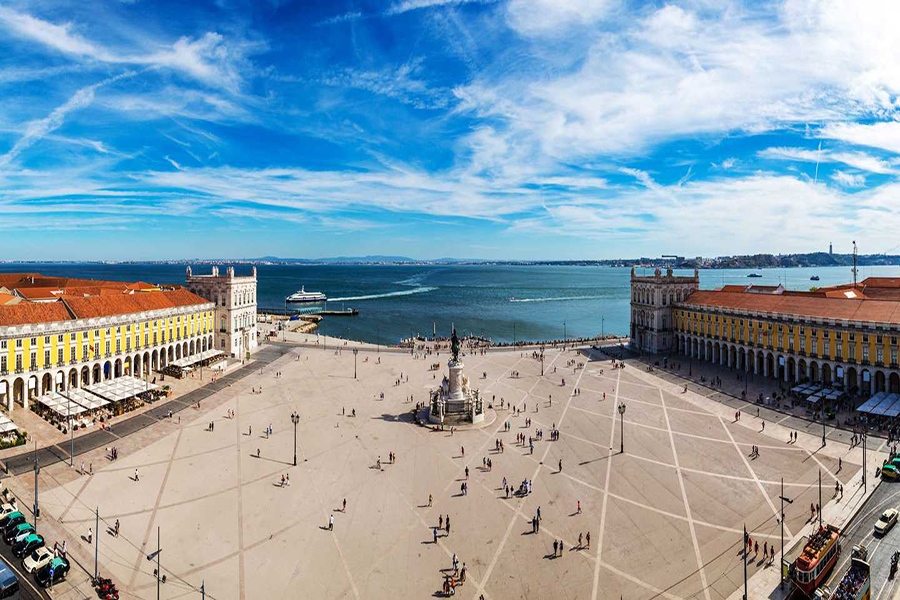The Lisbon City Council, in coordination with the Public Security Police (PSP), has installed antiterrorism protection barriers in tourist areas of the city, such as Chiado, Augusta Street and Mosteiro dos Jerónimos, in Belém.
In the places where thousands of tourists and Portuguese pass daily, cement blocks and metal pillars were installed to prevent vehicles from invading the streets, as in the attacks on Barcelona, Nice and Berlin.
According to a statement released by the Lisbon Chamber, the “solutions are compatible with quick access to possible rescue operations, in particular by firefighters and ambulances.”
The installation of the barriers took place after the attacks in Spain, claimed by the terrorist group Islamic State, on the last day 17. So far, 16 deaths have been recorded – including those of two Portuguese women; More than 100 injured; And 24 inpatients, five in critical condition.
The concern of the Portuguese government with the safety of tourists is not restricted to Lisbon, also encompassing cities like Fatima, Coimbra and Porto. According to data from the National Statistics Institute of Portugal (INE), in 2017, only until April, Portugal had already received more than 5.3 million tourists, an increase of almost 11% over last year. The estimate is that 21 million tourists this year, a record for the country, which has 10.3 million inhabitants.
After the attacks in Spanish cities, the Metropolitan Command of Lisbon released a statement on its Facebook page that says that, a few months ago, it had been reinforcing surveillance and security in areas of greater concentration of people.
According to the note, despite the fact that the degree of terrorist threat in Portugal remains moderate, and does not change, the PSP [Public Security Police], in coordination with the CML [City Hall of Lisbon], implements measures that were already being Studied some time ago, before the recent attacks in Barcelona. This intervention is being carried out in the region of Chiado, Rua Augusta and Mosteiro dos Jerónimos, as well as other locations within the jurisdiction of the Metropolitan Command of Lisbon whenever necessary.
According to Felipe Pathé Duarte, a university professor and member of the Observatory for Security, Organized Crime and Terrorism (OSCOT), the geographical proximity between Portugal and Spain has a strong psychological impact, but does not make Portugal a more specific target for the Islamic State.
“The Spanish context is completely different from Portuguese. Unlike Portugal, which is not mentioned in videos or social networks, Spain has been the target of direct and concrete threats. There is a demand on the networks for people speaking Spanish to open the movement to more recruits – since 2004, about 700 potential jihadists have been arrested. In addition, the Muslim community is much wider than here (in Portugal) and with signs of radicalization, “said Duarte, who defends the effectiveness of anti-terrorist barriers, but stresses the importance of reinforcing the presence of the police.
The communiqué of the Lisbon City Hall warns of measures that must be taken by the population in case of an attack: escape, protect themselves and call the police. The text reads: “Escape: this is the best option to protect yourself. Do not try to face, do not try to negotiate. Protect: hide, barricade yourself in a building or establishment until the authorities arrive at the place. Call: use 112 (emergency number in Portugal). Your description of the events can help the police. If he’s hiding, tell him where he is, that’ll make his relief easier. ”
According to police, the borders are under enhanced surveillance, as is the booking of bookings at hotels and car rental companies. Upcoming large events such as music shows, outdoor shows and football matches will also receive special attention from the authorities.
Photo: Reproduction
Source: Agência Brasil / DiáriodoTurismo

